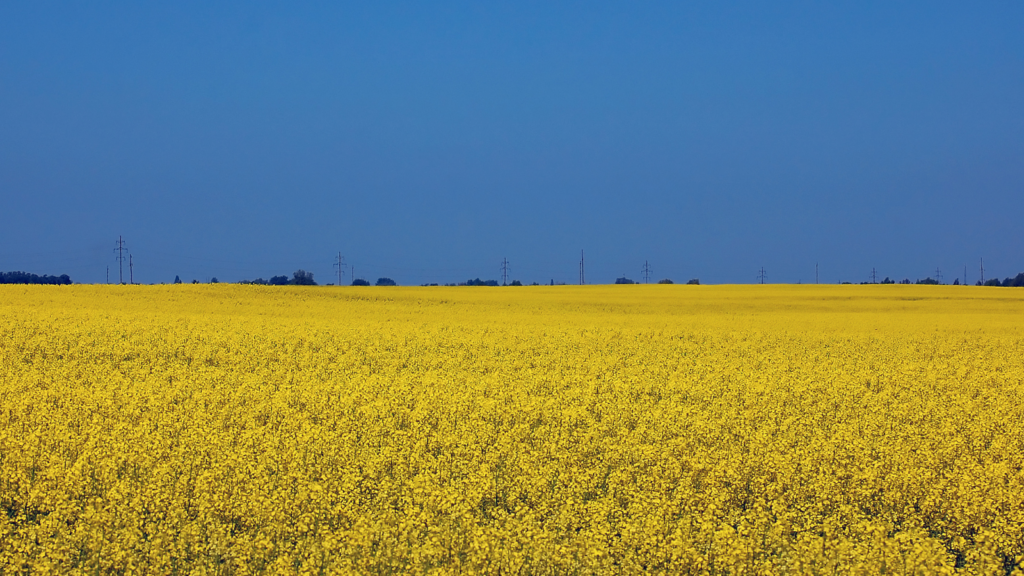Today, on June 20th, World Refugee Day, we stand together to honour the resilience and courage of millions of refugees worldwide. At Eurodiaconia, we emphasize that seeking asylum is a fundamental human right deserving respect and protection. Let this day serve as a crucial reminder of our shared responsibility to stand up for the rights of all asylum seekers and refugees.
A growing crisis
Regrettably, over the past year, the number of individuals displaced due to persecution, conflict, violence, human rights violations, or events seriously disturbing public order around the world has continued to rise. In 2023, the global count of forcibly displaced persons reached an alarming new high of 117.3 million, despite a record-breaking 108.4 million the previous year. This includes a significant proportion of children, who, despite comprising 30% of the world’s population, account for 40% of all forcibly displaced people.1 The major displacement hotspots remain Afghanistan, the Democratic Republic of Congo, Latin American and the Caribbean countries, Myanmar, Somalia, Sudan, and Ukraine. Moreover, the escalation in Gaza since 2023, along with the resulting humanitarian crisis, has significantly increased protection needs in the region.2
Ongoing war in Ukraine
The ongoing conflict in Ukraine remains a significant focus this year. With the European Commission’s recent proposal to extend the Temporary Protection Directive until March 2026, we see a step towards stability for the nearly 4.2 million Ukrainians currently displaced within the EU, a third of whom are children. While this timely extension is welcomed, long-term solutions are needed to holistically address the situation. This perpetual temporariness of protection provided severely affects people’s ability to integrate into host societies, impacting their employment opportunities, career rebuilding, ability to pursue education, and to secure stable housing contracts.
Our member Diakonia Polska has been coordinating cash assistance programs since 2022 in response to the war in Ukraine. Currently in its third round, the Multi-Purpose Cash Assistance Project operates in 15 Polish regions. In 2023, over 7,200 households (19,632 refugees) received prepaid cards for three months. In autumn 2023, around 3,000 vulnerable refugees received one-time cash assistance for winter needs. These efforts, coordinated with the UNHCR and local NGOs, promote beneficiaries’ autonomy and ownership. The “Cash for Rent” project supports 74 families in uncertain housing situations, offering six months of financial aid and labor market integration activities to enhance their autonomy and employability.4
Since the beginning of the invasion more than two years ago, the Evangelical Diakonia in Slovakia has also been providing vital support to Ukrainian refugees with temporary protection status. Across several communities, our member coordinates comprehensive integration activities, helping single-parent Ukrainian families adjust to their new lives. This includes psychosocial support, health assistance, educational activities, employment assistance, therapeutic groups, language classes, and tutoring for children. They have also provided humanitarian aid, accommodating over 500 refugees in church housing, distributing cash vouchers and essential materials, while engaging with local stakeholders to support refugee integration.5
Increasing polarization
Public dialogue has been shaped by a crisis narrative leading to the polarization of both social and political debates around migration and asylum. This directly affects social cohesion and the opportunities for achieving an effective inclusion of newcomers in hosting communities. To ensure successful integration and inclusion, Eurodiaconia members actively work on the provision and access to education, employment, housing and social services for third country nationals.
For example, Asociación Nueva Vida has launched the campaign ‘MISIÓN (IM)POSIBLE’ to raise awareness about the housing access difficulties faced by migrants and refugees in Spain. The campaign highlights how even those legally permitted to work often struggle to find housing due to discrimination. To combat this, Nueva Vida is using posters in Santander and Bizkaia, and social media videos to depict an ideal, discrimination-free housing search for migrants and refugees. The campaign also promotes good rental practices and offers resources on their website to connect landlords with tenants fairly, aiming to dismantle prejudices and improve access to housing for migrants.
Criminalizing solidarity
Meanwhile, EU Member States continue to criminalize acts of solidarity towards migrants, asylum seekers, and refugees, a deeply troubling trend that directly undermines European values of solidarity, respect for human dignity, and fundamental rights. Since 2002, under the so-called Facilitator’s Package, hundreds of individuals and NGOs aiding migrants and supporting search and rescue operations have been criminalized and prosecuted under the guise of combating smuggling and unauthorized immigration facilitation.6 This legislation is currently being updated at the EU level as well as reviewed by the European Court of Justice, presenting an opportunity to ensure a mandatory humanitarian exception excluding acts of solidarity, which are inherently antagonistic to the profit motives behind smuggling and trafficking.7
Closing remarks
On this World Refugee Day, Eurodiaconia calls for solidarity, equal opportunities and the promotion of social inclusion to ensure that migrants, refugees and asylum seekers receive the necessary support to rebuild their lives in dignity and safety in a Europe that is welcoming. As the EU and its Member States prepare for the implementation of the new Pact on Migration and Asylum, we reaffirm the vital role of civil society in supporting refugees and asylum seekers. It is crucial that civil society is part of the dialogue for developing and monitoring the implementation plans, to ensure a humane approach that upholds human rights, and promotes safe and legal pathways.
Citations
1 Global Trends report 2023 | UNHCR. Link: https://www.unhcr.org/global-trends-report-2023
2 EUAA, Asylum Report 2024 – Annual Report on the Situation of Asylum in the European Union. June 2024
4 Diakonia Polska welcomes Eurodiaconia – Eurodiaconia
5 Evangelical Diakonia in Slovakia Supports 2300 Ukrainian Refugees – Eurodiaconia



